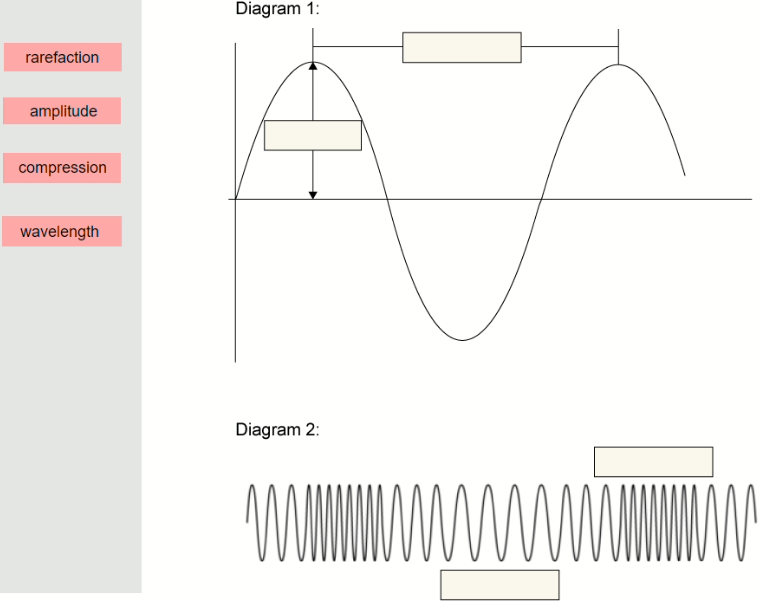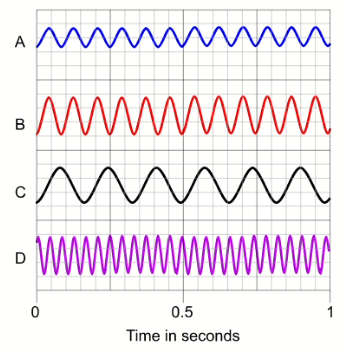IB myp 4-5 physics – Practice Questions- All Topics
Topic :Waves-Longitudinal and Transverse Waves
Topic :Waves– Weightage : 21 %
All Questions for Topic :Reflection, refraction, diffusion, longitudinal \& transverse waves
Question (10 marks)
These animations show the two different types of wave moving along springs.
Question a (2 mark)
Label the two diagrams below to show wavelength, amplitude, compression and rarefaction.

▶️Answer/Explanation
Ans:


Question b (1 mark)
Sound waves can be represented on a computer. Below are some waves recorded on a computer from four different sources.

Calculate the frequency of wave $\rm A$.
▶️Answer/Explanation
Ans:
Summative assessment
Probing the atom
As a general rule, waves can only be used to see objects that are larger than the wavelength of the waves. Since the wavelength of visible light is about a thousand times larger than an atom, an optical microscope cannot be used to see individual atoms. The nuclei of atoms are much smaller still and so we require waves with very small wavelengths to probe the nucleus of atoms. Electrons demonstrate both a wave-like and a particle-like behavior and since the wavelength of high energy electrons can be very small, they can be used to probe the nuclei of atoms. In an experiment to measure the size of the nucleus of a gold atom, the wavelength of the electrons is 2 × 10–16 m and they are traveling at 3 × 108 m s–1.
Question:
Calculate the frequency of the electron wave.
▶️Answer/Explanation
Ans: \(\frac{3\times 10^{8}}{2\times 10^{-16}}=1.5\times 10^{24}Hz\)